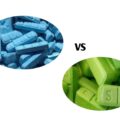According to the American Psychological Association, Anger is “an emotional state that varies in intensity from mild irritation to intense fury and rage,” according to Charles Spielberger, Ph.D., a psychologist who specializes in the study of anger. Like other emotions, it is accompanied by physiological and biological changes; when you get angry, your heart rate and blood pressure go up, as do the levels of your energy hormones, adrenaline, and noradrenaline.
Anger can be caused by both external and internal events. You could be angry at a specific person (such as a coworker or supervisor) or event (a traffic jam, a canceled flight), or your anger could be caused by worrying or brooding about your personal problems. Memories of traumatic or enraging events can also trigger angry feelings.
The instinctive, natural way to express anger is to respond aggressively. Anger is a natural, adaptive response to threats; it inspires powerful, often aggressive, feelings and behaviors, which allow us to fight and to defend ourselves when we are attacked. A certain amount of anger, therefore, is necessary to our survival. On the other hand, we can’t physically lash out at every person or object that irritates or annoys us; laws, social norms, and common sense place limits on how far our anger can take us.
People use a variety of both conscious and unconscious processes to deal with their angry feelings. The three main approaches are expressing, suppressing, and calming. Expressing your angry feelings in an assertive—not aggressive—manner is the healthiest way to express anger. To do this, you have to learn how to make clear what your needs are, and how to get them met, without hurting others. Being assertive doesn’t mean being pushy or demanding; it means being respectful of yourself and others.
Anger can be suppressed, and then converted or redirected. This happens when you hold in your anger, stop thinking about it, and focus on something positive. The aim is to inhibit or suppress your anger and convert it into more constructive behavior. The danger in this type of response is that if it isn’t allowed outward expression, your anger can turn inward on yourself. Anger turned inward may cause hypertension, high blood pressure, or depression.
Can I Use Xanax For Anger Management Issues?
Alprazolam, sold under the brand name Xanax, among others, is a short-acting tranquilizer of the triazolobenzodiazepine class, which are benzodiazepines fused with a triazole ring. It is most commonly used in the short-term management of anxiety disorders, specifically panic disorder or generalized anxiety disorder. Xanax is NOT recommended for anger management issues, as a matter of fact, Xanax can exacerbate anger issues especially in someone abusing Xanax. One of the main effects of Xanax is that it can leave you extremely inebriated. Xanax abuse and addiction can lead to unpredictable mood swings, and anger is often a part of the mood swings. Depressive symptoms and extreme anger are also common when someone is addicted to Xanax. Episodes of hypomania and mania have occurred in association with the use of Xanax in people with depression.
Xanax misuse
People often misuse Xanax for the fast-acting, relaxed “high” it can provide. According to the Treatment Episode Data Set, the number of people seeking treatment for benzodiazepine misuse almost tripled in 1998–2008. Long-term misuse and addiction to Xanax are associated with depression, psychotic experiences, and aggressive or impulsive behavior.
According to the Substance Abuse and Mental Health Services Administration, in 2011, there were over 1.2 million emergency room (ER) visits related to the nonmedical use of prescription drugs. Xanax was involved in around 10% of those visits. The number of ER visits involving the nonmedical use of Xanax doubled from 57,419 to 124,902 during 2005–2010 and remained stable at 123,744 in 2011. The most common drug combinations that healthcare professionals encountered in people presenting to ER were Xanax with alcohol and Xanax with prescription opiates such as hydrocodone (Zohydro ER) and oxycodone (OxyContin).






